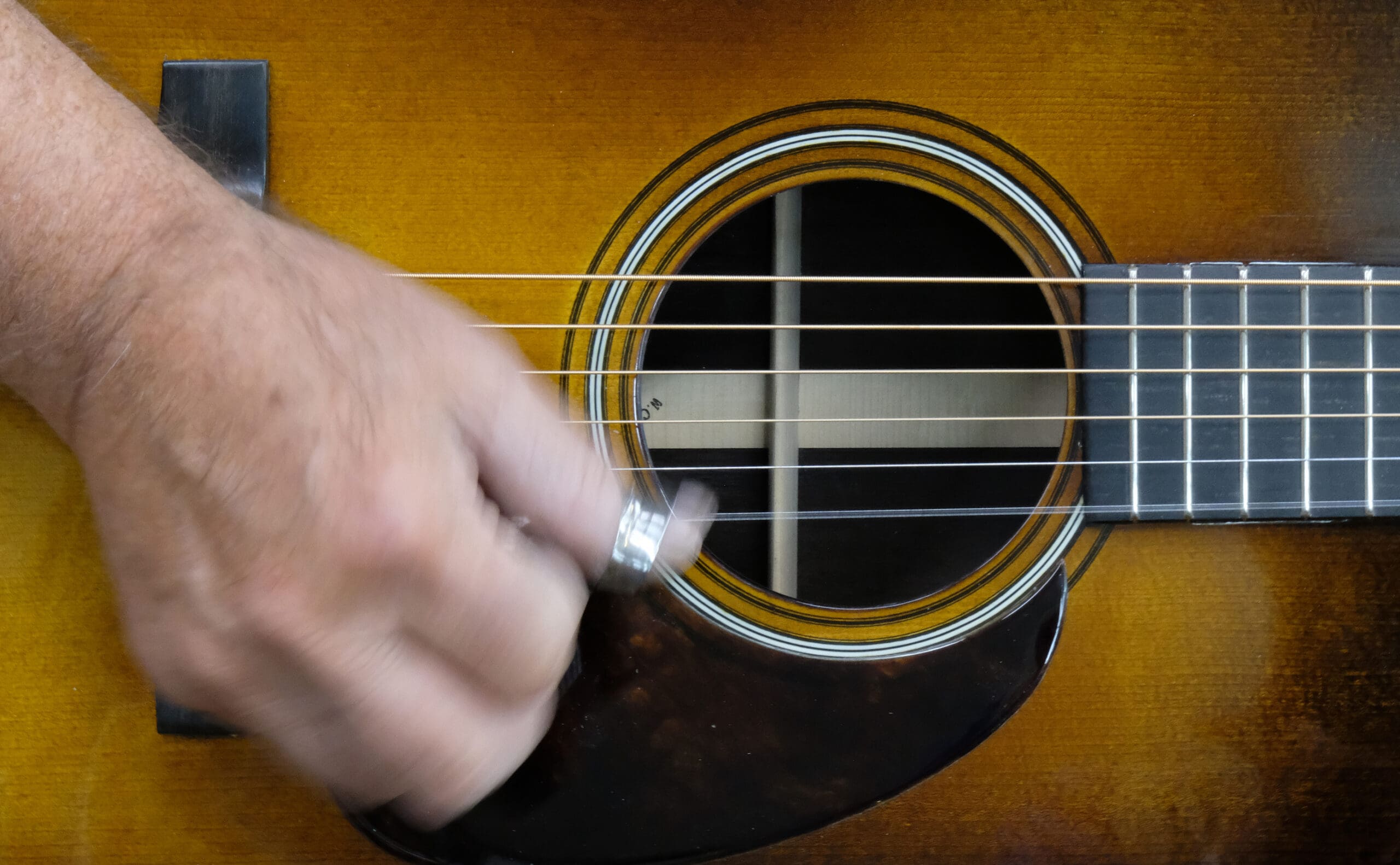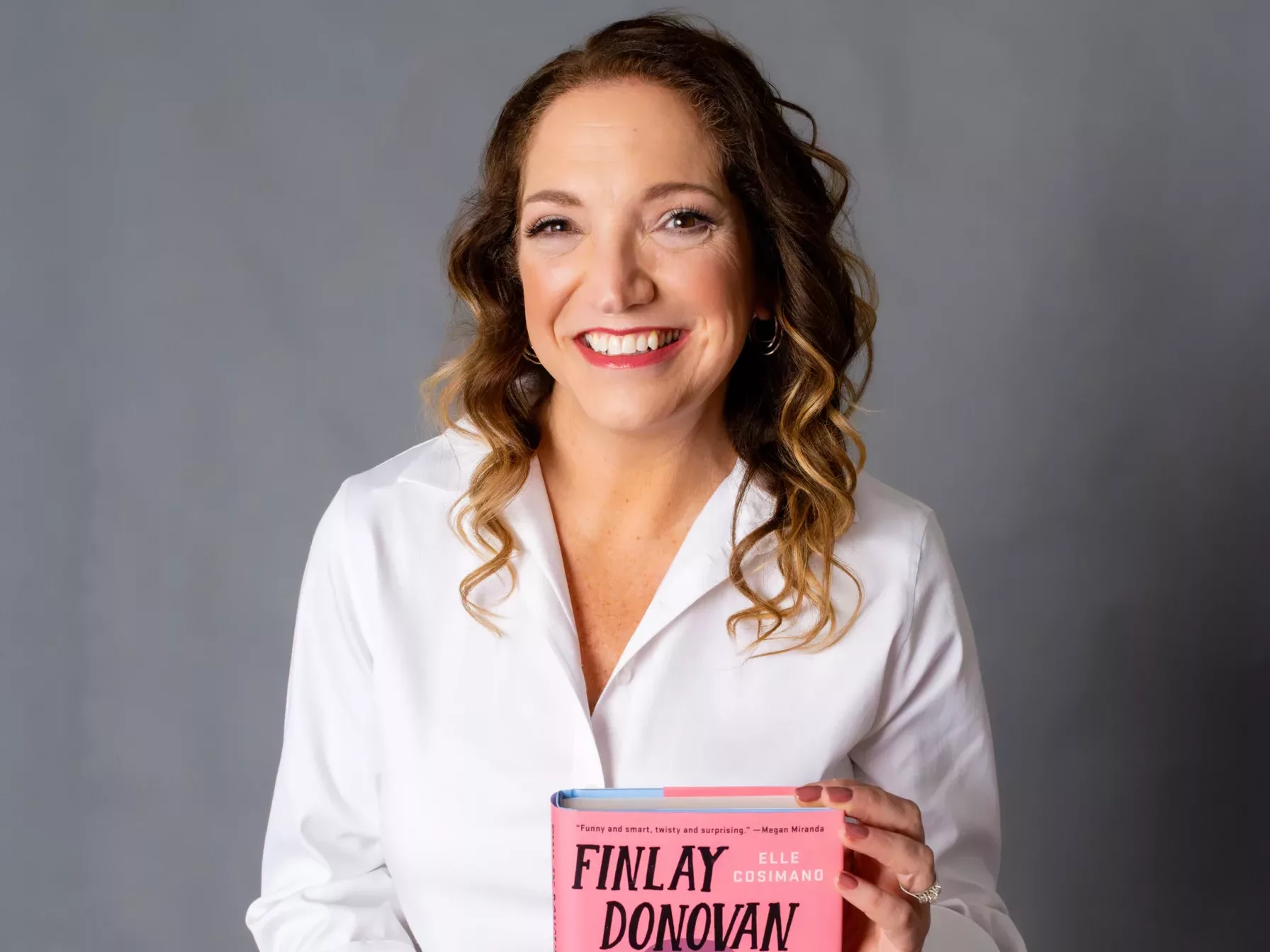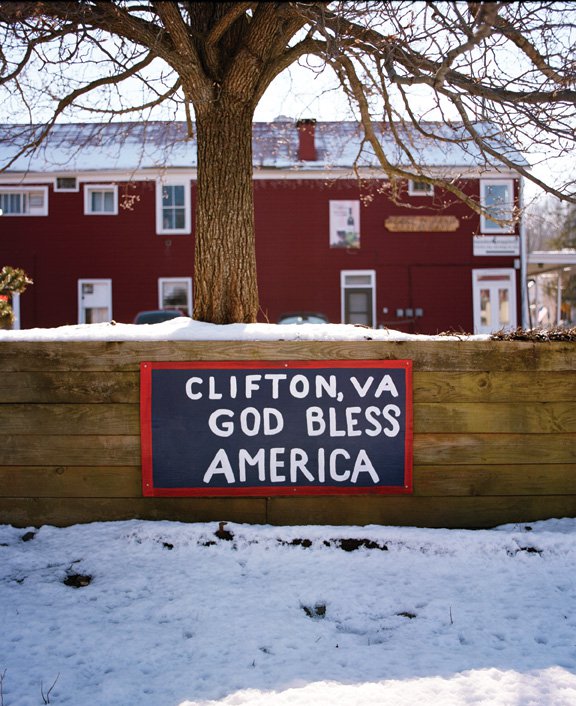Wayne Henderson is the sort of man, humble and genial, with a funny story ever at the ready, who always seems among friends.
Which was precisely the scene in June as the renowned guitar-picker and -maker took the outdoor stage that bears his name at Grayson Highlands State Park in Mouth of Wilson for the last set of the final Wayne C. Henderson Music Festival & Guitar Competition. As the late-afternoon sun descended toward a neighboring ridge, more than 2,000 festivalgoers rose from their lawn chairs to cheer Henderson, a favorite son of Southwest Virginia.
“I guess it was impossible to know everybody there, but I bet I knew almost everybody somehow or other,” Henderson said later at his workshop in the nearby community of Rugby, where he was born and raised and which, he likes to say, has a steady population of seven. The Crooked Road, Virginia’s heritage music trail, runs within a half-mile of his home.
Henderson, 77, pulled the plug on the festival after 30 years, because “we’re all worn out,” he says, from producing the annual event, but he doesn’t want to give the wrong impression.
“People think because we’re quitting the festival that I’m dead or something,” he says.
He’s still performing regularly and building his highly sought-after acoustic guitars, a pursuit that thrills him when he strings a new instrument and it utters its first, rich sound.

Henderson also hasn’t changed much. “Genuine” is the way former Virginia folklorist Jon Lohman describes the man who has forged a remarkable path out of Grayson County, playing Carnegie Hall and Fenway Park (a singular joy for the Boston Red Sox fan), being honored at the White House, entertaining the Queen of England, and performing around the world. He’s surely the only Rugby resident to play a gig in Pakistan. Yet, he is most comfortable working amid piles of sawdust in his shop.
“You meet a lot of famous people, and they disappoint you,” says Lohman, executive director of the Center for Cultural Vibrancy. “Wayne is everything you would hope he would be. He’s just the most welcoming, nicest guy.”
Generous, too. Over the years, the festival raised more than $500,000 for scholarships—almost $48,000 this year alone from a raffle with the prize of a new Henderson guitar—to help young musicians pay for lessons and camps, a deeply personal mission that will continue. Henderson recalled having no one to teach him to play guitar when he was a child and having to attend fiddlers conventions to watch and study older players.
“But none of them wanted to show a kid how you do this lick or that one,” he says. “The best teacher I had was when I got a phonograph and Doc Watson’s records.” Years later, the Grammy-winning Watson became a friend and a frequent visitor to Henderson’s shop.
As good a player as Henderson became, he is as well-known for his handcrafted guitars, which stand out because of his “intimate understanding of the great pre-war guitars, developed by decades of studying them, repairing them, and playing them,” says Allen St. John, author of the book Clapton’s Guitar: Watching Wayne Henderson Build the Perfect Instrument (Free Press, 2006).

Detail of the intricate inlay work on a handmade guitar. Photos by Bob Brown

Henderson hard at work in his luthier shop in Rugby. Photos by Bob Brown
Henderson famously took almost a decade to finish a guitar for rocker Eric Clapton. The delay, Henderson explains, was that Clapton “didn’t pester” him.
Thing is, pestering doesn’t always get you a guitar. Lots of people want Hendersons, but demand far exceeds supply. In 60 years, Henderson has painstakingly produced fewer than 1,000 guitars, including for musical luminaries such as Vince Gill, Ricky Skaggs, Gillian Welch, and Watson. Brad Paisley showed up at the last Henderson festival to pick up his and played it on stage a few minutes after strumming it for the first time.
Henderson says he’s been “behind on orders” forever, but “orders” would imply an organized system. As far as St. John can tell, there is no waiting list, “except possibly in Wayne’s head, and that one seems to be a work in progress.”
On the secondary market, Henderson’s guitars fetch tens of thousands of dollars, yet Henderson typically sells new guitars for less than $5,000. Why not charge more? “I don’t want to,” he says.
“I’m not in it for the money,” Henderson explains, noting he retired from a career as a rural mail carrier and doesn’t need a job. “Guitar-building is super fun for me.”
To close out the festival, Henderson was joined on stage by a collection of accomplished musician friends, which for this occasion was made even more special by two additional players: his daughter, Jayne, and 3-year-old granddaughter, Matilda. Jayne is among many young luthiers mentored by Henderson; after studying environmental law, she changed course and followed her dad into the instrument-making business. Matilda is showing early promise on the ukulele.
“For my little grand-young’un to get up and play a tune with us is pretty exciting,” he says. “Maybe she’ll end up being a musician. You never know.” WayneHenderson.org
This article originally appeared in the October 2024 issue.










